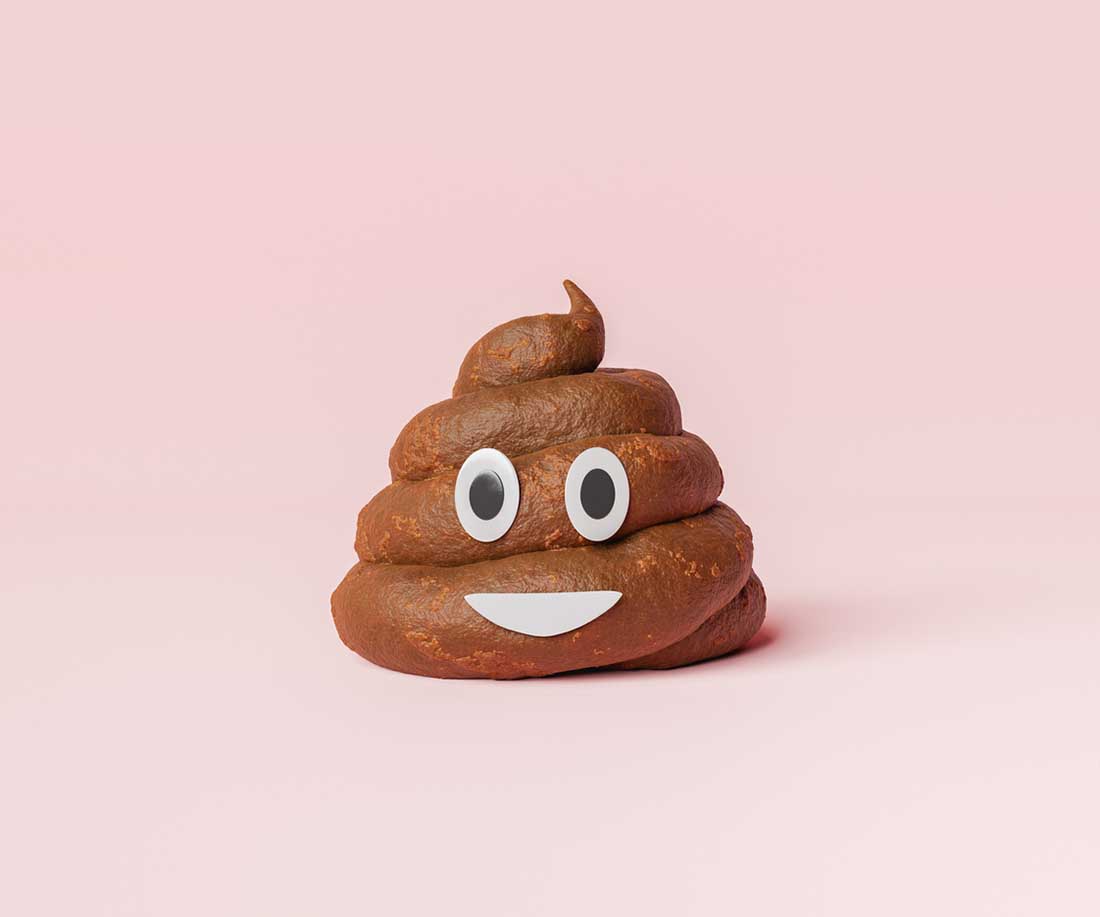Experts in human medicine are constantly learning more about how important the gastrointestinal tract is for overall health. That’s also true of your dog’s digestive system. Your dog’s gut, just like your own, is a critical part of his health and well-being. Before learning how to firm up dog poop, it’s important to learn more about how that gut works.
Sometimes, dietary changes, new food, stress, and conditions like inflammatory bowel disease, bacterial infections, and parasites, among other problems, can have a dramatic impact on your dog’s health. Among the first symptoms you might see in that case is your dog’s loose stools.
You might be wondering just how you can firm up your dog’s stool since digestive health is so important. You also might want to know what your dog’s poop is supposed to look like and what you can do to help with soft stools. Let’s take a look at your pooch’s digestive health, what loose stools mean, and the steps you can take to firm up dog stools.
What Should Your Dog’s Poop Look Like?
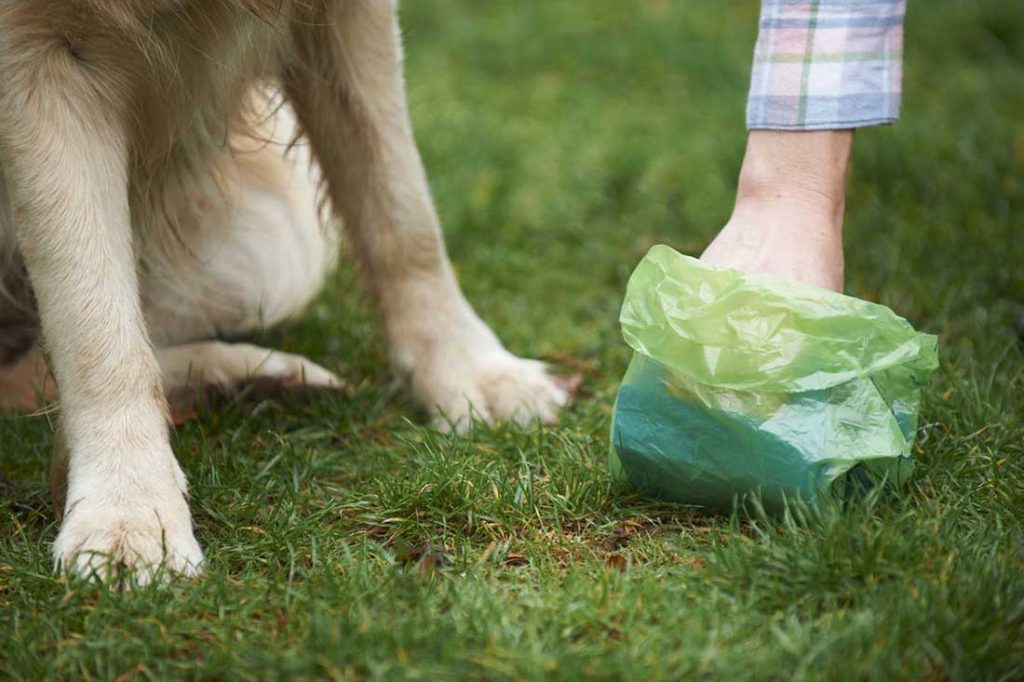
The digestive system is responsible for numerous important functions, including:
- processing food
- absorbing (and even producing) certain vitamins and other nutrients
- disposing of waste/fecal matter
When compared with humans,the dog’s digestive tract is shorter. This means a healthy dog will digest their meals in approximately one-third of the time it takes a human to digest their food.
Dogs also have different digestive enzymes in their stomachs and saliva. That is why they can eat and digest certain foods that humans cannot. Because of the role the gastrointestinal tract plays in your best friend’s health, his bowel movements are going to be a good indicator of his gut health.
When it comes to how your best friend’s poop should look, consider the four C’s: color, consistency, content, and coating.
Color
Normally, dog stool is chocolate-brown in color. The color is affected by the pigment bilirubin, which is released in bile by the gallbladder. The color can vary and still be normal, but some abnormal colors that you want to pay attention to include the following:
- Black Stools: This indicates bleeding high up in the digestive tract. The stool can appear kind of like tar if this is happening.
- Red Streaks in the Stool: Bright red in the stool indicates bleeding in the lower digestive tract.
- Grey or Yellow Stools: These colors can indicate broader health problems involving the pancreas, liver, or gallbladder.
It’s important to remember that stool color can be off every now and again. If an abnormal color persists for more than two bowel movements, however, it’s time for a checkup.
Consistency
Your veterinarian will use a numerical score for evaluating your dog’s stool consistency. The scoring system they use is a 7-point system where 1 is rock hard (too hard), and 7 is a puddle of poop (too soft).
Ideally, your dog’s poop should score a 2; that is, it should be firm, segmented, and shaped like a caterpillar. When you press on it, it feels like Play-Doh, and it holds its shape.
If your dog’s stool is too soft and runny, it means that the large intestine is not reabsorbing water as it should. If it’s too hard, it can indicate dehydration and other types of problems.
Content
It’s also important to look at what is actually in your dog’s feces. The inside should look the same as the rest of the stool. If it doesn’t, that can indicate a problem.
What kind of things might you see? If your buddy has a bad parasitic infection, you might see worms in his poop. Roundworms are long and skinny, but you might also see just parts of parasites. For example, tapeworms shed egg-containing sacs that look like rice in your dog’s poop.
You might also see evidence your buddy has been snacking on things he shouldn’t have been ingesting, like sock pieces, plastic, or even rocks. You might also see lots of fur. This can indicate a problem associated with overgrooming, such as allergies, boredom, or even a skin disease of some kind.
Coating
Basically, your pooch’s poop should not have any coating or film on it. It shouldn’t leave any kind of trail behind when you pick it up off the grass. If it does have a coating of mucous, that could indicate inflammation in the large intestines, and that is associated with diarrhea.
What Causes Doggie Diarrhea?
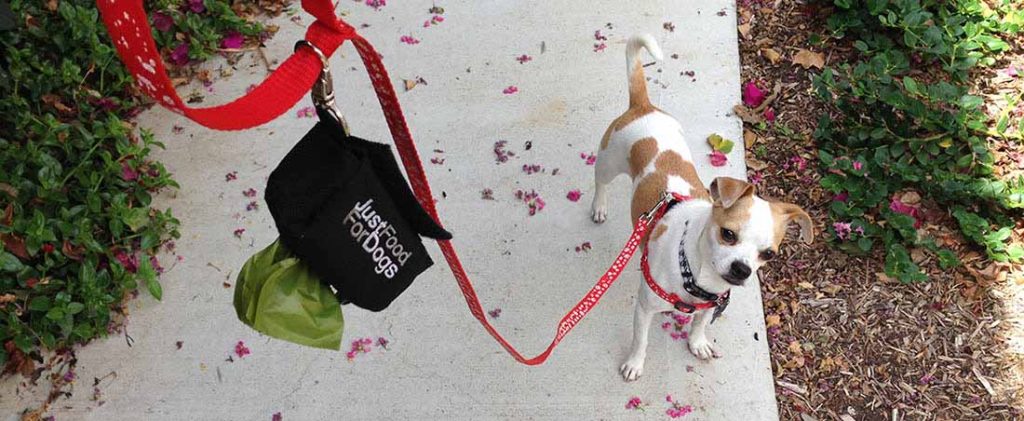
First of all, it’s important to understand that there is a difference between diarrhea and soft stools. Soft stools still have some form, and you can pick them up to dispose of them. Diarrhea is runnier, and you’re not going to be able to pick it up.
Diarrhea can be caused by numerous health issues, including a bacterial infection, a viral infection, or a parasitic infection. There are also some chronic health problems, like inflammatory bowel disease, that can cause diarrhea.
Diarrhea can also be caused by:
- garbage consumption
- dietary indiscretions (a few too many treats or human food consumption)
- fatty foods
- intestinal parasites
- diet change
- a weak immune system
- food intolerances
- certain medications that can affect the normal bacteria living in your dog’s gut.
You can consider that your dog has diarrhea if he has abnormal bowel movements of loose, watery stool three or more times a day. If it lasts for more than one or two days, it’s time to call the vet.
Soft Stools
Soft stools, on the other hand, often indicate dietary insufficiencies, or in other words, a diet lacking in certain nutrients, usually protein and fiber. Food intolerances can also cause soft stools, as can chronic stress. In fact, stress colitis is one of the most common causes of diarrhea in dogs.
Both diarrhea and soft stools, if left untreated, can cause bigger health issues down the road. They can result in dehydration and metabolic imbalances, which is why you want to monitor your dog’s poop to ensure the issue gets resolved.
If you do notice either diarrhea or soft stools, try to identify any changes you’ve made recently to your dog’s routine. For example, did you change to a new dog food? Has your dog recently gotten into something he should have, like the garbage? Is your dog getting enough protein and fiber? It will be important to report any such changes or deficiencies to your veterinarian.
What Can You Do to Firm Up Your Dog’s Stool?
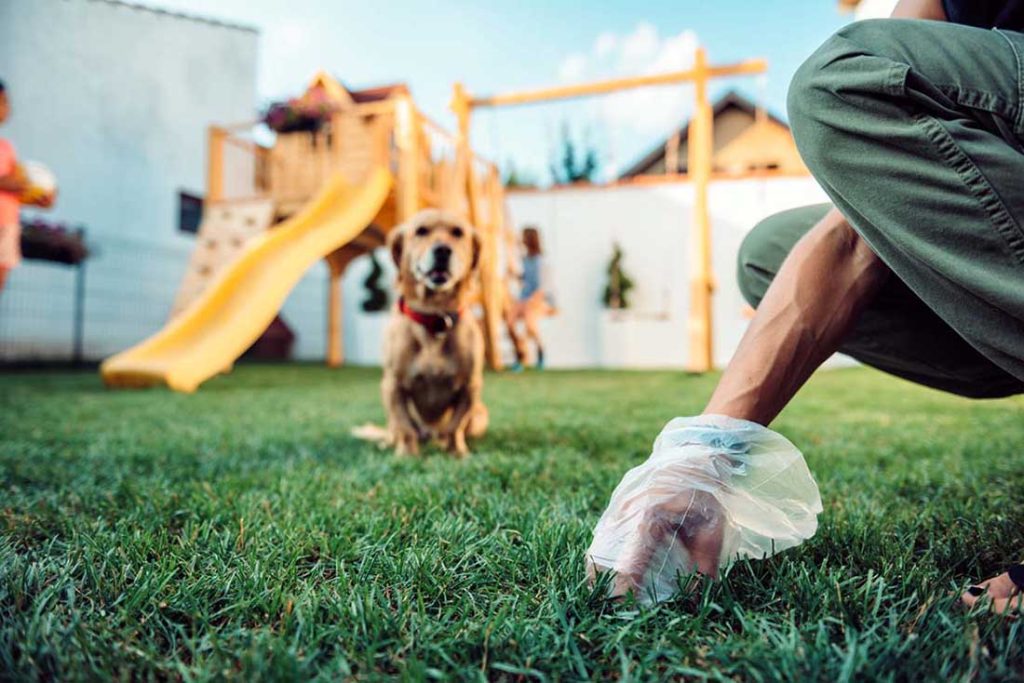
There are several things you can do to help firm up your dog’s stool if they are soft. Here are a few things you can try that may help.
1. Water, Water, and More Water
Your dog should always have access to clean, fresh water for drinking, but it’s particularly important if your dog’s poo is soft or diarrhea. As mentioned, the main role of the large intestine is to resorb water as waste moves through. When your dog has diarrhea, the waste is moving too quickly through the intestinal tract, and it’s not able to sufficiently resorb water.
That means your dog is losing water and can easily become dehydrated. Dehydration can quickly become lethal if it’s not treated. What’s more, water is important for binding fiber in the gut. So by providing your puppy with plentiful drinking water, you’re helping to firm up their stool.
2. Electrolyte Replacement
It’s also important to realize that dog diarrhea disrupts the electrolyte balance in your buddy’s system. To address that problem, you can give your furry friend over-the-counter oral rehydration solutions (ORS) by mixing them in with his drinking water.
If you don’t happen to have access to an ORS, you can easily make one by mixing 8 teaspoons of sugar and one teaspoon of salt in a liter of water. That will help to rebalance his system and keep him from going downhill quickly.
3. Fasting
Fasting for 12 to 24 hours can help slow acute cases of dog diarrhea. Especially if the culprit is dry kibble or something else not agreeing with them. That can often be enough time to allow the digestive tract to settle down. If it seems to help, you can then introduce some small portions of food to see if the diarrhea resumes.
4. Bland Diet
A bland diet may also help to firm up your dog’s stools. This might be something like chicken and rice recipes, or you could also give him pureed pumpkin or bananas. Those have higher levels of fiber, which help to firm up his stool. Your vet might recommend giving him some fiber supplements like Metamucil.
5. High-Quality, High-Protein Diet
For normal, healthy bowel movements, dogs need sufficient levels of digestible protein. Chicken and turkey are probably better choices as opposed to beef or other types of protein sources.
It’s also a good idea to limit foods containing a lot of preservatives as well as paté style dog foods. Choose dog foods with natural ingredients and transparent nutritional labels. If you’re preparing something at home, consider giving white rice instead of other types of carbohydrates.
6. No Dairy
Dairy is a common cause of soft stools in dogs, so it’s best to remove that from your pet’s diet altogether. It’s normal for many mammals to become lactose intolerant after they are weaned. Humans are an interesting exception. Humans consuming the milk of domesticated animals resulted in genetic changes allowing some to tolerate lactose after weaning.
For your pooch, however, it remains something that is difficult for them to digest. If your pooch suffers from chronic soft stools, removing dairy from his diet may make all the difference.
7. Minimize Fatty Foods
Fatty foods are also a common cause of diarrhea or soft stools. Blander, milder foods can be a relatively easy way to firm up your doggie’s bowel movements. It’s important, however, to realize that it might take some time to see an improvement. You should also avoid any food that is fried in oil, as those are very difficult for your dog to digest.
8. Probiotic Supplements
Just as with humans, there are good bacteria living in your dog’s intestinal tract. Bacteria in the gut produce necessary vitamins, like Vitamin K, which is essential for clotting, and they help digest the food, making its way through the system.
Unlike humans, however, the bacteria in a dog’s gut is different from ours. That’s why it’s important to make sure you are giving probiotic supplements designed for dogs and not for humans. Those designed for humans can actually make your dog’s loose stool worse. Fortiflora is one probiotic that is specifically made for dogs. Consult your veterinarian for recommendations.
9. Fiber Is Fine!
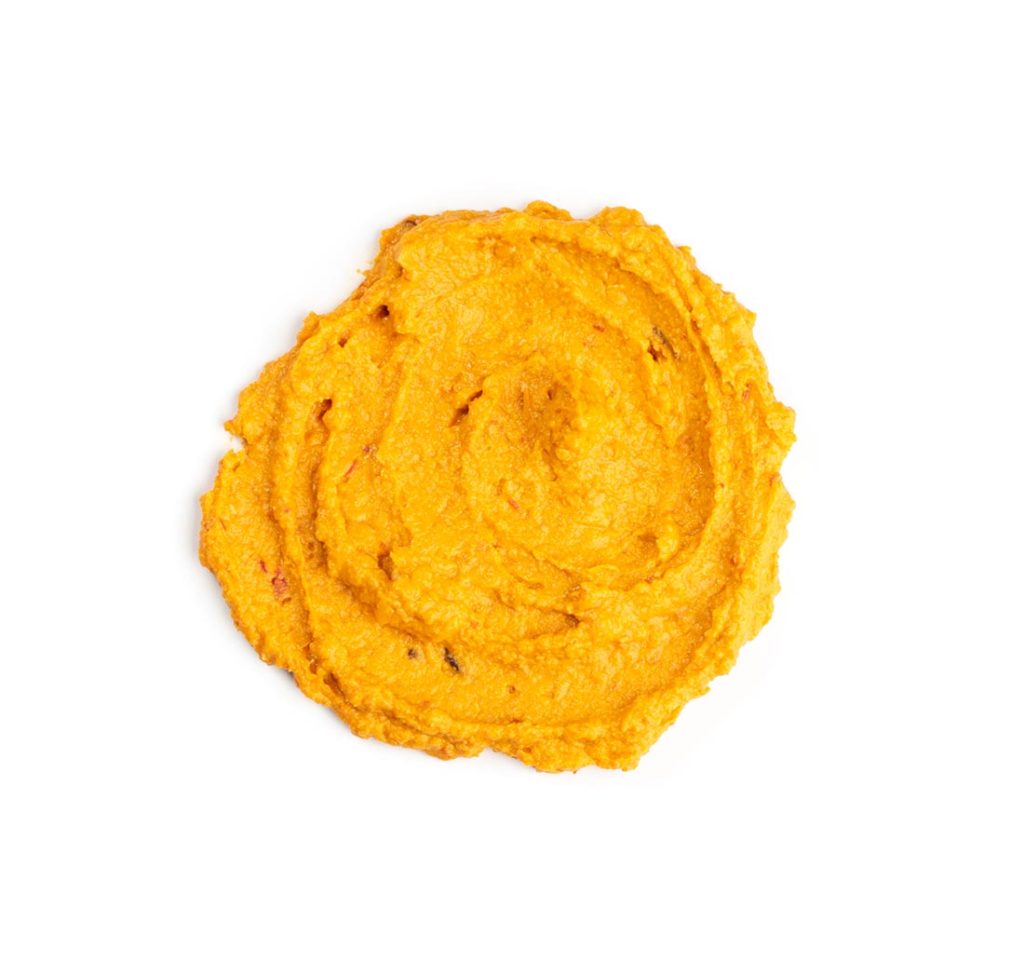
Finally, adding fiber to your dog’s diet is a great way to firm up his poop. Fiber helps absorb extra fluid in the digestive tract. It helps your dog feel more full, and it aids in digestion. Canned pumpkin is a great addition to your dog’s diet for this purpose, as is white rice.
It can also help to give your dog some raw fruit and uncooked carrots for extra fiber. Avoid canned vegetables and other processed foods since they tend to have excessive sodium.
What Should You NOT Do for Doggie Diarrhea?
While there are some over-the-counter supplements and medications that can be helpful for your dog’s diarrhea or soft stools, you have to be very careful with them. That’s why it’s best to avoid certain medications you can buy at the store for humans.
This is particularly true if you don’t know for sure what is causing your dog’s problem. Some medications can actually do more harm than good. For example, Pepto Bismol and Kaopectate both have bismuth subsalicylate as an active ingredient. It’s a derivative of aspirin (salicylic acid). If your dog gets the wrong dose of that, it can be toxic.
Additionally, if your dog has an underlying condition that’s responsible for his diarrhea, like intestinal bleeding, for example, certain medications can make that worse. They can affect the clotting functions and times, which can lead to weakness as a result of anemia or potentially worse symptoms.
Imodium is one medication that you have to be particularly careful with because it is a synthetic opioid that can cause constipation. It works by slowing down the normal movement of the gut, called peristalsis. But too much of a good thing is a bad thing, and if the dose isn’t just right, it can cause constipation, bloating, sedation, and even pancreatitis.
Additionally, some dog breeds, like herding dogs (Shelties, Australian Shepherds, and Collies, for example), carry a mutant form of a specific gene that can limit their ability to break down drugs like Imodium. So, you don’t want to give it to those breeds.
Finally, some of the human medications you might give, like tablet anti-inflammatory medications, can appear as metal on an X-ray, which could be misleading for your veterinarian.
Always Talk to Your Veterinarian First
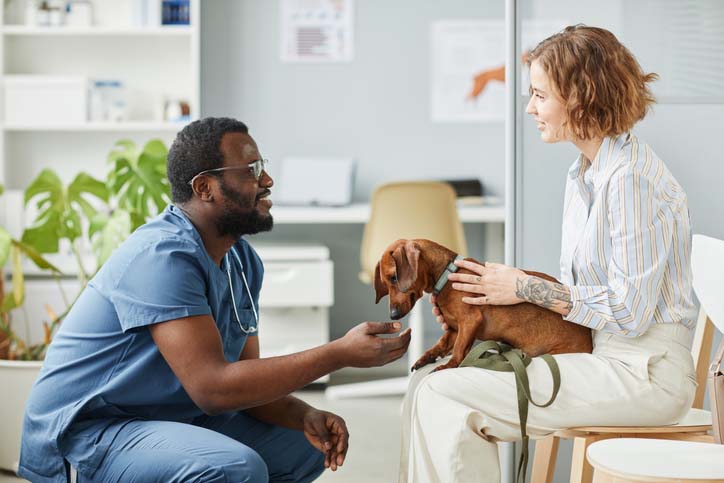
Before giving your dog any kind of medication or other home remedies, it’s vital that you talk to your veterinarian first. It’s also a good idea to get your pup a checkup for diarrhea or soft stools since the underlying cause might be something like a parasite that requires treatment.
Giardia, for example, is a very common water-borne parasite that causes diarrhea. The treatment for it is a drug called Metronidazole, which helps firm up stools. But you need to have a veterinarian check for that or other possible underlying causes before you give anything to your pooch or change his routine.
Just check with your vet before you change anything or give your best friend something you think will help. You might also want to collect a stool sample for your vet to test.
Healthy Recipes for Digestive Health
If you’re looking for a good dog food for your best furry friend’s sensitive tummy, explore fresh, whole ingredients that deliver human-grade nutrition.
This content is for informational use only and does not replace professional nutrition and/or medical advice, diagnosis, or treatment. It is not a substitute for and should not be relied upon for specific nutrition and/or medical recommendations. Please talk with your veterinarian about any questions or concerns.
